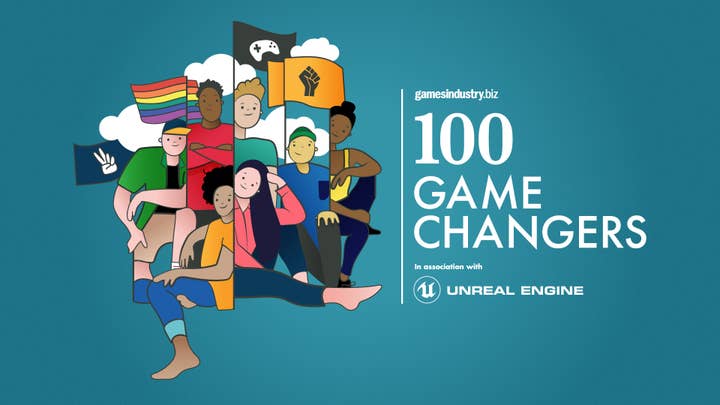GI 100 | Game Changers -- Part Two
Game Changers continues with people advocating for better Muslim representation, raising awareness of human trafficking through games, and teaching one million girls to code
As 2020 draws to a close, many will reflect on 12 months defined by stress, upheaval, and the urgent need to confront some difficult truths about the way the games industry operates, and the myriad ways it can be a better and more inclusive place.
But just as that process of self-examination is necessary, so too is recognition for those already working to solve those problems. In this GI 100 series we will profile 100 individuals and organisations making progress in vital areas like diversity, accessibility, charity, mental health, progressive politics, lifting emerging markets, uniting communities, and more -- people whose stories can show us how this industry can be that better and more inclusive place.
Below are the second group of ten Game Changers, with ten more to follow every working day until December 18. The project is sponsored by Unreal Engine and you can read more about it, and find links to all ten parts, here.
Sidick Bakayoko, Paradise Game
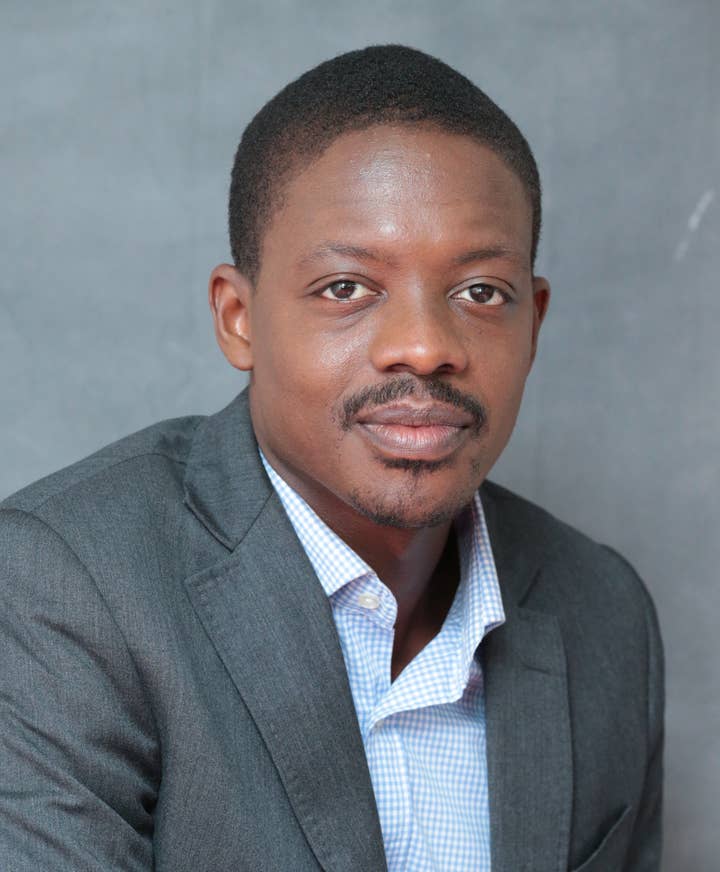
Those who nominated Sidick Bakayoko for this project described him as a "driving force" behind the games industry in Côte d'Ivoire, and West Africa more broadly -- one who has helped to fund African developers' attendance at major events like Gamescom, in addition to founding two of the pillars of the region's games industry.
Chief among them is Paradise Game, the leading esports franchise in West Africa, which aims not just to entertain young people, but to educate and empower them, too.
"Over half a million people have engaged in our esports festivals, gaming and edtech facilities," Bakayoko says. "Our vision is to engage and influence 200 million Africans through esports and video games. In a few years [since 2016] we are happy to see how we were able to change the landscape and impact positively the communities."
In the context of West Africa, Paradise Game is more than just a games company; it has become "a beacon" for the region's games business and culture. It operates a 1,200 sq. meters gaming center -- the largest in West Africa -- and produces the region's first video game focused TV show.
Bakayoko also started "Africa Corner" at Paris Games Week in 2018, as a showcase for game developers from all over the continent, and runs the Festival de l'Electronique et du Jeu video d'Abidjan (FEJA) video games festival, which brings more than 20,000 people to Abidjan, Côte d'Ivoire each year.
"Over half a million people have engaged in our esports festivals, gaming and edtech facilities"
Sidick Bakayoko
"FEJA was created with the ambition to become the biggest video game and esport event in Africa," Bakayoko explains. "Very early on we engaged with existing local communities across the region, including Nigeria, Ghana, Benin, Togo, etc. After the success of the first editions, in 2019 we had players from 12 countries including Algeria, Cameroon and France."
Together, these endeavours have provided a framework for the region's games industry to flourish. This year, Bakayoko joined the board of the African Game Developers Association with a similar objective in mind -- "to contribute to creating a better and more sustainable environment."
"The industry can support us by shedding light on our work and our initiatives," Bakayoko says. "Africa is not yet seen for its real potential, and through our activities, global companies can better assess the market and find opportunities."
Mark Chandler, International Games Summit on Mental Health
Mark Chandler has worked in and around the games industry for more than 20 years in a variety of roles, but much of his resume is made up of consulting gigs because, as he explains, "It's kind of impossible for me to hold down a full-time, nine-to-five job because of my illness."
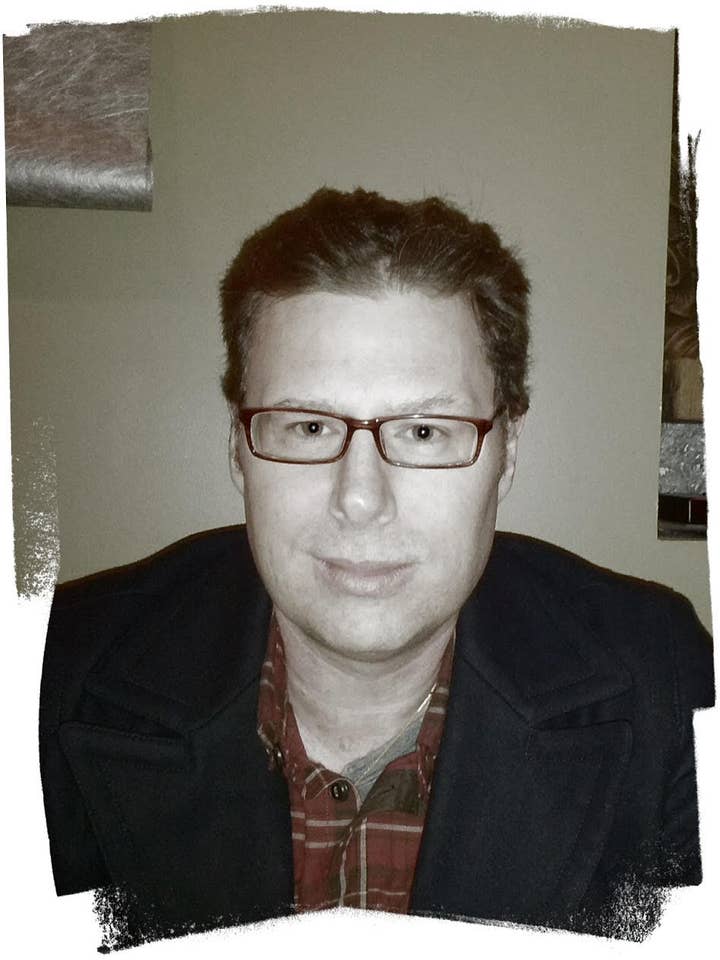
"I am a person with a mental health illness and I openly talk about it, on Facebook, on LinkedIn, face-to-face, pretty much everywhere," Chandler says. "Mental health illness affects everyone in my family; we have schizophrenia, depression, anxiety, bipolar (type 1 and type 2), and other personality disorders like paranoia and suicide ideation in my immediate family."
Chandler has bipolar type 2 mental health illness that was diagnosed in 2003. It's something he has dealt with ever since. After a particularly difficult stretch about five years ago, he decided to start a conference specifically about mental health in gaming, "so that others would realize that they are not alone in their daily hidden struggle."
That led him to create The International Games Summit on Mental Health, or TIGS. With the help of mental health non-profit Take This, Chandler organized the first TIGS in Toronto in 2019. Despite a global pandemic and an industry exhausted by a summer packed with virtual conferences, Chandler put together the second installment of TIGS this year as a two-day online-only conference, featuring an impressive lineup of industry veterans like John Smedley, Chris Charla, Mike Wilson, and Chris Metzen discussing mental health issues publicly, in some cases for the first time.
Chandler says Eve Crevoshay from TakeThis has been particularly important, both to TIGS and himself.
"Our industry needs to acknowledge and understand that one out of four to five of their employees has some sort of mental health illness or issue at any one given moment"
Mark Chandler
"She has learned how to work with me and also work with and around my illness," Chandler says. "There would be no TIGS, in its current state, without Eve and her help. I also get help from industry friends like Mike Wilson and Mark Rein and some others that prefer to remain in the background."
As for what the industry can do to support Chandler, he says getting more people and companies involved with TIGS both as sponsors and attendees is the focus for 2021.
"Ubisoft and Microsoft were our sponsors this year," Chandler says. "But all of our industry needs to acknowledge and understand that one out of four to five of their employees has some sort of mental health illness or issue at any one given moment."
Osama Dorias, IGDA Muslims in Games Special Interest Group
In addition to his roles as lead designer at Warner Bros. Montreal and chair of the IGDA Muslims in Games SIG, Osama Dorias is also a game design teacher at Dawson College and the co-founder of the Montreal Independent Game Awards. In all his roles, he is passionate about advocating for all marginalized people in the video game industry, though his focus is on Muslim representation and inclusion.
Dorias began working in the games industry 13 years ago, and began advocating for diversity and inclusion a few years after that.
"As a junior in the industry I worked on games that misrepresented Muslims," he says. "The experience didn't sit well with me, but it's hard to speak up when you believe that your job may be on the line. I tried to make small changes here and there to address problematic issues, but didn't have the courage to do more than that.
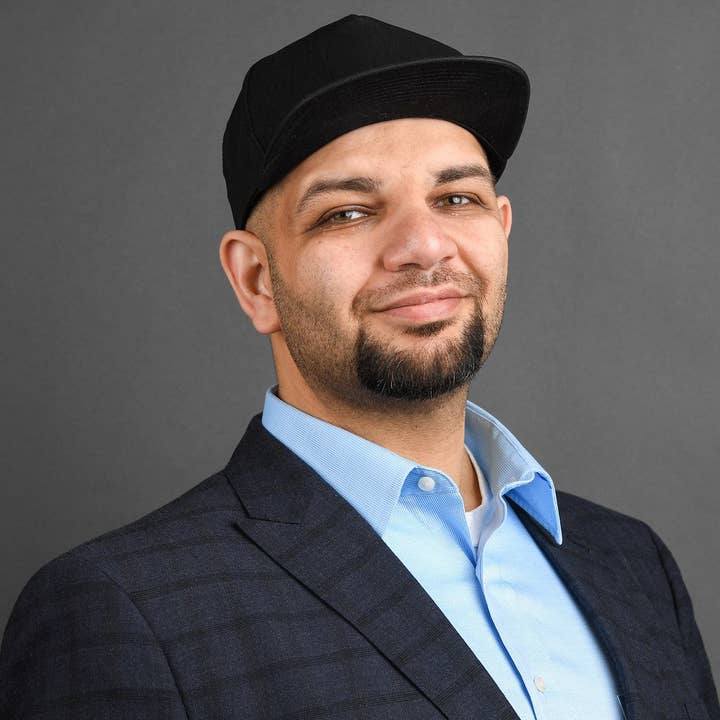
"As I accumulated experience my courage grew and I became more vocal. This culminated in me speaking on the subject at several small events in Montreal. Eventually I was invited to speak at bigger and bigger venues."
Dorias says he has the Amplifying New Voices program to thank for his start as a speaker. The workshop group sent him to his first GDC and helped him launch his advocacy work. He also is grateful to the IGDA and the IGDA Foundation for supporting his work hosting Muslims in Games Roundtables and workshops, and providing mentorship and support.
And he's also grateful to Dames Making Games for inviting him to speak at DMG Camp in Toronto, his first speaking engagement outside of Montreal. And to WB Games Montreal, which recently invited him to speak to all of Warner Media on the topic of Muslim representation, as well as allowing him a flexible schedule to speak, teach, and share his experience with the industry.
"The industry has already supported me, and for that I am eternally grateful," Dorias says. "We've made some huge strides since I started as a lowly junior game designer. We have a long way to go, but we're definitely headed in the right direction."
Lisy Kane and Sarah Moran, Girl Geek Academy
Like many other people profiled for Game Changers, Lisy Kane and Sarah Moran were inspired to act because they didn't see people like themselves represented in the industry.
"We founded Girl Geek Academy in 2014, when our five co-founders Sarah, Lisy, Tammy, April and Amanda found ourselves looking around at tech events and thinking... where are my mates?" Kane and Moran explain. "We are women who wanted something like Girl Geek Academy to exist, so we built it."
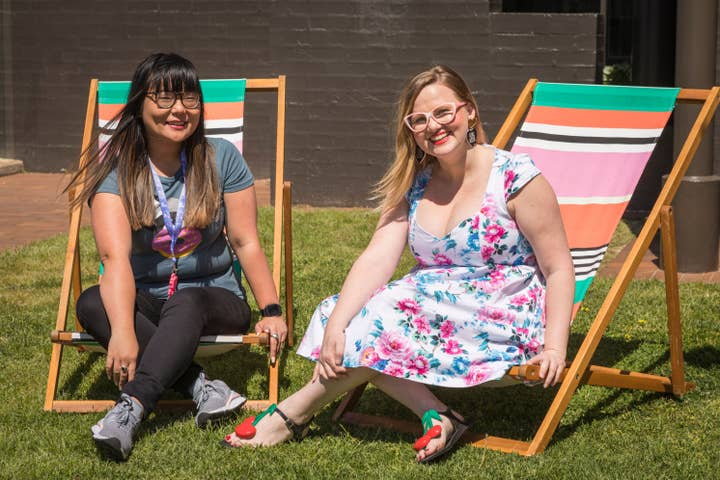
Along with Kane and Moran, Girl Geek Academy was founded in Melbourne, Australia by Tammy Butow, Amanda Watts and April Staines. As the organisation has grown in the years since, it is supported by the efforts of more and more people, including core team members Leura Smith and Cherie Tan, and five Girl Geek Academy ambassadors: Alex Miles, Celeste Carnegie, Dayle Stevens, Naureem Allam, and Dayle Stevens.
"Girl Geek Academy is a movement teaching one million women technology skills by 2025. We increase technical aspirations in young girls and women from ages 5 to 95 through coding, making, entrepreneurship, game development, startup skills and more.
"Girl Geek Academy is a movement teaching one million women technology skills by 2025"
Lisy Kane and Sarah Moran
"We partner with teachers, parents, corporate leaders and governments and we all work together to see women and girls succeed in tech."
Girl Geek Academy is already well on its way to that admirable target, with more than 10,000 people having taken one of its programs. Among the myriad activities Girl Geek Academy creates and arranges are workshops for young girls to learn how to code and create their own games (#MissMakesCode), hackathons for women and non-binary people (#SheHacks), and Australia's first all women and non-binary game jam (#SheHacksGames).
"The best way to support us is to run one of our programs and get involved," Kane and Moran say. "We have offerings for people no matter what stage they are in their career. You can find out more about running one of our programs and joining our community on our website."
Leena Kejriwal, Missing Link Trust
Leena Kejriwal first entered a Kolkata red light district around 20 years ago, as part of an art and photography project on India's cities and public spaces. It would prove to be one of the defining experiences of the next 20 years of her life.
"The experience hasn't left me since," she says. "I found myself particularly sensitive to the plight of a girl I was working with, and I further explored her story as the main subject of my artwork. It manifested as a public artwork titled 'MISSING'."
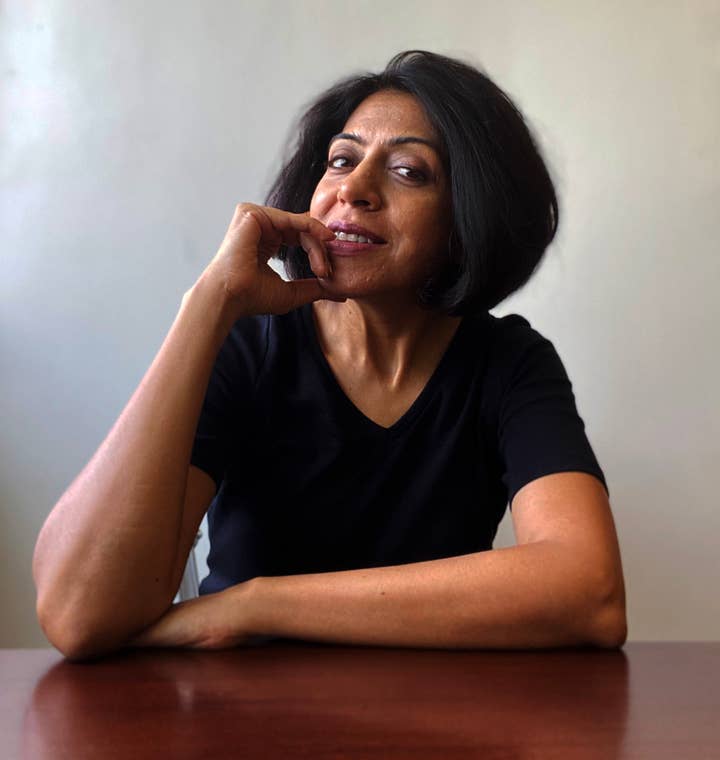
In her attempt to find the a visual language for the "the utter tragedy of the loss of these girls in the dark holes of trafficking," Kejriwal created an image: the profile of a woman in silhouette, which received acclaim at the India Art Fair in 2014, and has been replicated more than 5,000 times all over the world in the "Missing Stencil Project."
That image became the focal point for a necessary conversation about human trafficking in India, where around 18 million women and girls are estimated to be trapped in "modern day slavery."
"Trafficking is demand driven, and the public, the largest stakeholder in the issue of sex trafficking, is far away from the conversation," Kejriwal says. "Because if it's not your daughter, your sister, or anyone you know getting trafficked, why would it matter? In our passiveness and inaction, we are also perpetrators of the crime.
"Missing Link Trust was born from the simple idea of engaging and involving the public on the role they play in trafficking, through the use of art, technology and immersive narratives."
While the work of the female-led Missing Link Trust takes many forms, the one with perhaps the most reach is a video game -- Missing: Game for a Cause, which represented the experiences of India's missing girls to the country's rapidly growing smartphone audience.
"It started with me wanting to create an experience about what a girl goes through when she's forced/sold for money," Kejriwal says. "To create awareness, to create empathy for victims and survivors of trafficking, for that girl you see standing on the side of the road selling her body for survival.
"Today, the Missing game is a powerful awareness tool for prevention of trafficking. It is part of our national educational program"
Leena Kejriwal
"The perceptual positioning -- of being able to step into the avatar of the girl, Champa -- is very crucial. It also shapes the outcome, what the player takes away from the game: empathy. Today, the Missing game is a powerful awareness tool for prevention of trafficking. It is part of our national educational program."
It is just one of many initiatives created by the Missing Link Trust, all of them rooted in interactivity -- from murals linked to Facebook chatbots scattered across India's cities, to immersive learning programmes taught in 3,000 of the country's schools. A new version of the game, Missing: The Complete Saga, is currently in development -- it can already be wishlisted on Steam -- and Kejriwal is actively seeking a publisher to help guide the project through its final stages.
"It would be great if we could connect with publishers to help us finish the last leg of the work and publish it across the world -- our target audience," she says. "Our vision is to create a world where every girl is safe. Our mission is to be the motivator, the resource provider, and data house for any entity and individual creating awareness against sex trafficking."
'Maskedsound', accessibility advocate
'Maskedsound' began composing music when she was 17. More recently, she has been learning audio implementation, making multiple Unreal Audio implementation tutorials specifically aimed at beginners, and publishing a free sound effects pack for developers to use in their projects -- including commercial ones.

Last year, she found herself in a situation where she couldn't use her dominant arm for a brief period, and began asking for recommendations of games she could play with one hand. Since then, she has been an advocate for more accessible games, specifically within the Singapore game development community and in spaces where accessibility is less-discussed and often not thought of at all.
To further this, she wrote and published an accessible design document for the Singapore Games Guild. It serves as a basic resource for developers to understand the importance of accessibility in games and begin to implement it, especially in locally made titles. It includes articles, references, consulting resources, papers, podcasts, videos, and more. She also frequently asks questions of developers at local conferences about accessibility, prompting those in the community to think more frequently and critically about accessible design and its importance.
She says the best way to support her is to support her music on Bandcamp.
"I am looking for work and I'd love to collaborate with like-minded developers," she says. "Especially ones that understand the importance of good audio design and accessibility in games, which I think is an underserved audience."
Taina Myöhänen, We In Games Finland
Taina Myöhänen is the president and co-founder of We In Games Finland. The organisation was initially created in 2019 as Women In Games Finland, but its history goes back to 2011, when a Facebook group was established under that name.
"Over the years, the Facebook group grew to a community of nearly 2,000 people, and the need for a formal organisation that could push the agenda further became more apparent," Myöhänen explains. "My personal aim is pretty straightforward: when entering the games industry in 2006, I found games to be a great place to work, and I want everyone else to feel the same."
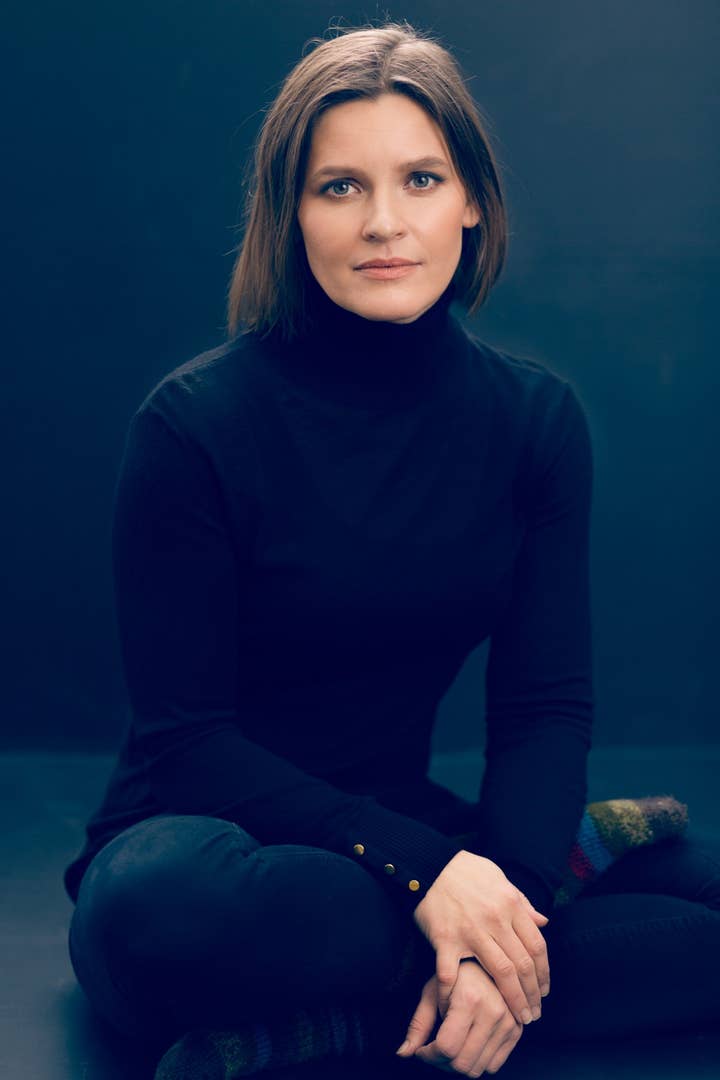
Myöhänen has worked tirelessly towards that goal ever since, alongside We In Games' board members and activists.
"This definitely is not my show," she says. "Our members reach us to give ideas and suggestions to take this organisation further, and we have other companies collaborating with us. It would be very difficult to raise anyone above the other, as every action matters and everyone contributes what they can."
When the organisation was officially established, it kept the name of the Facebook group due its "historical value," but its mission was always to champion all aspects of diversity and inclusion in games regardless of gender -- which is why it became We in Games this year. The organisation provides networking help, mentorships, and support on topics such as understanding Finnish labour laws, how to tackle impostor syndrome, and more, sometimes partnering with IGDA Finland.
"We support the careers of our members by offering mentoring and arranging workshops and lectures around the topics our members find important," Myöhänen says. "It is important to see that someone like you is working in the industry. Representation matters. One of our biggest initiatives is that we keep up a speakers list -- we want to make people from different backgrounds visible and [elevate] new faces and experts."
For Myöhänen, the biggest step towards change is to listen to what people discussing diversity and inclusion are saying.
"Every little step counts," she says. "These are topics where we all keep learning, and we learn by listening to others. In Finland, we've had fantastic support from game industry companies that have funded our events and projects, and from other organisations who have offered their resources and help for many things we have done. I am very grateful about this."
Hannah Nicklin, Die Gute Fabrik
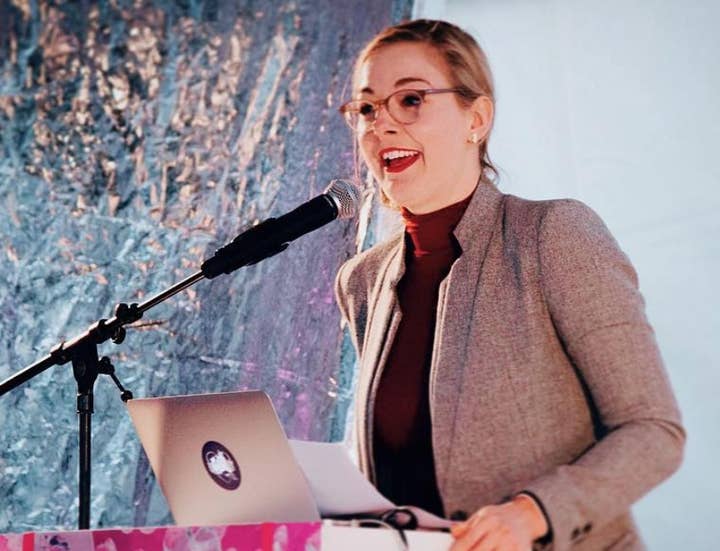
Hannah Nicklin has been many things throughout her career: teacher, PhD, producer, playwright, interactive theatre maker, performer and storyteller, community and installation artist, and activist.
But she is perhaps best known in games for her work as writer and narrative designer on award-winning adventure game Mutazione by Copenhagen-based Die Gute Fabrik, and her ongoing efforts to push for better diversity and inclusivity.
This is a cause she is now more empowered to pursue having been offered the role of CEO and studio lead by the company's co-owners Christoffer Holmgård, Nils Deneken, and Douglas Wilson.
"Giving up power in itself is a radical act," she says. "I couldn't be in the position I am today without the trust and giving up of the leadership of Die Gute Fabrik by Christoffer, Nils, and Douglas. I've not talked about my vision for the company in public much yet, but I hope it involves something similar -- that after a decade or so of excellent projects, I can hand the leadership and vision for the company on to someone else for whom that power will mean something greater."
"I'm more interested in building radically empowering systems for work than I am in producing radical works"
Hannah Nicklin
Nicklin now leads the team on an unannounced project, but she is just as excited for the possibilities afforded by her new role as she is the creative challenge ahead.
"Part of the driving force behind my accepting [the role]... was the singular power it gave me to create not just a new game, but also to create a framework to radically rethink how to run a studio and development process.
"Process is a radical work, and I'm more interested in building radically empowering systems for work than I am in producing radical works -- though they're good too, of course. Material conditions are a thing. I wanted to try and build the best I could within the bounds of late capitalism."
She acknowledges that her work, both as a creator and an activist, is an ongoing pursuit -- "not something that is ever 'achieved' or 'finished'."
In fact, Mutazione is a prime example of this.
"I worked hard to make it as sensitive and complicated and true as possible," she says. "We worked with a diversity consultant especially on Kai's racial portrayal, among other things. But was it okay that our team was entirely white? No. And while I didn't have the means to affect that then, I store the reflection and act on it when I have the resources to put it into practice."
Martina Santoro, OKAM Studio
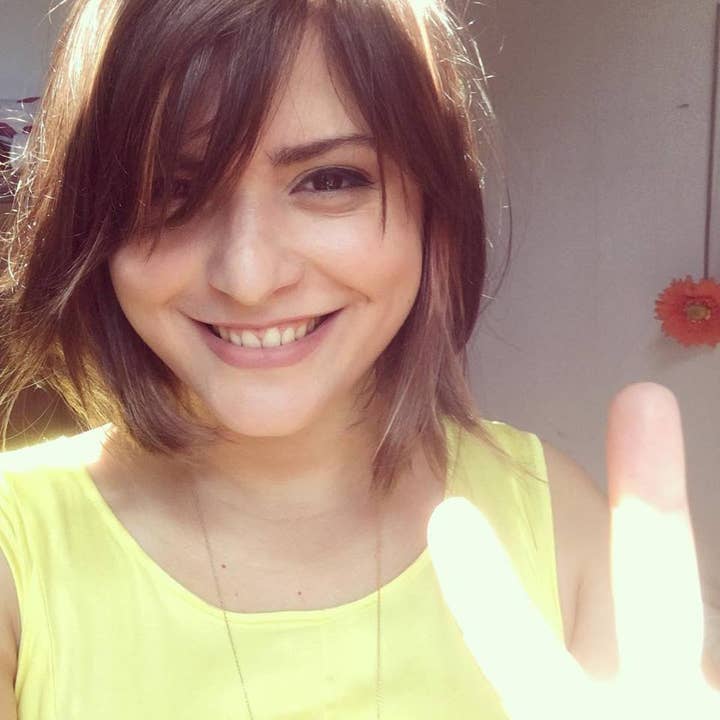
A few years ago, Martina Santoro was invited to be part of Rami Ismail's #1ReasonToBe panel at GDC. At first, she was puzzled -- despite having founded OKAM Studio in Buenos Aires in 2010, Santoro wasn't a designer, an artist, a programmer, or a producer. She didn't 'make games' in the traditional sense.
"Then why the f*** did he want me there!?" Santoro recalls. "The night before the panel, I understood why. If I wasn't there, a lot of games wouldn't have existed -- and not only OKAM's. In my community (not only in Argentina, but in the region) I was one of the many that was a catalyst that triggered change."
In the decade since she co-founded OKAM Studio, Santoro has been at the bedrock of the regional games industry. A former president of the Argentinean Game Developers Association, the founder of the LATAM Video Games Foundation, a member of the advisory board for Devcom, a persistent advocate for diversity -- she has sought and embraced opportunities to celebrate and lift up the work of her peers at every stage.
"When we started the studio back in 2010, the industry was smaller but it was as generous as it is today," she says. "Being so far away from the main industry development hubs, information was the key for survival. Information meant not only the knowledge you needed to develop a game, but also how to distribute it and market it, how to look for funding, or even talk to the press.
"Watching so many people growing around me has been one of the most rewarding experiences of my life"
Martina Santoro
"We were lucky enough to find the local game dev association (ADVA) and other game dev peers that sat down with us and helped us in every step of the way... Community meant everything, and it still does."
The industry in Argentina has changed since 2010, moving up what Santoro describes as the "value chain" of the global industry -- and it is thanks in no small part to people like her, who are committed to closing the gap in knowledge and access that lies between major hubs like North America and Europe and so much of the rest of the world.
"Watching so many people growing around me has been one of the most rewarding experiences of my life," she says. "And it did change me, too. I discovered a side of myself I never thought I'd explore.
"And the best way to support me in the future is by joining me. There is so much to be done. LATAM is very young! We need more people... The more we are, the better. The more diverse we are, even better. No matter what you love to do, I guarantee there is a place for you in this industry. If I found mine, why wouldn't you?"
Thorsten S. Wiedemann, A MAZE
There are many indie and less traditional games events across the year, but few are as well-regarded as A MAZE -- thanks in no small part to the hard work of its founder and artistic director Thorsten S. Wiedemann.
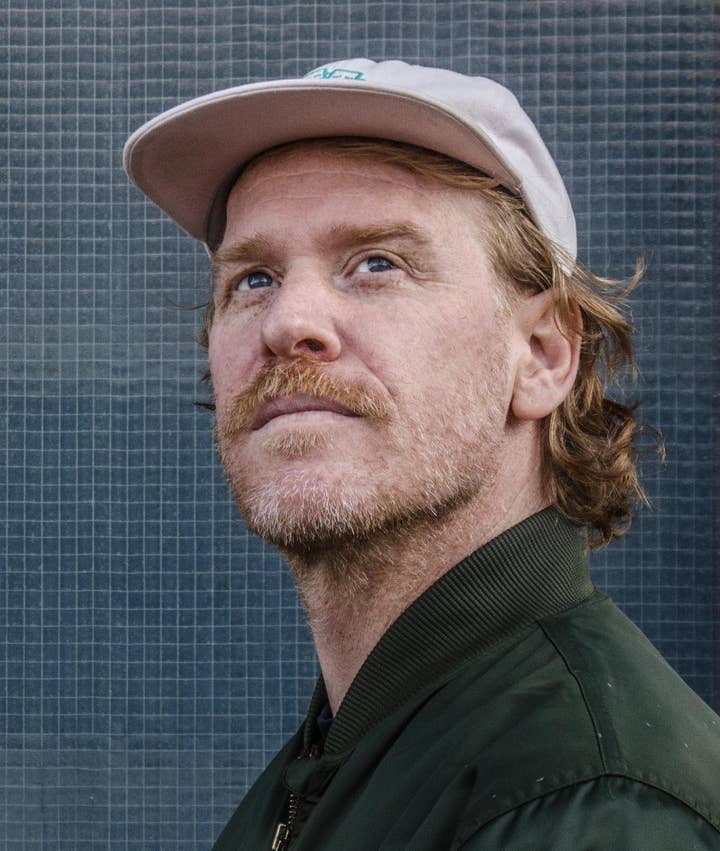
Wiedemann has helped manage and direct this celebration of arthouse games since 2008, leading to the first iteration of its current festival in Berlin, Germany back in 2012. It was an event he created to fill a keenly felt void.
"A MAZE started because I couldn't find any game events where I was feeling at home," he explains. "That was around 2007. I knew about Indiecade and Babycastle, but they were in the US. In Europe, there was still this blank spot -- no one actively featured and celebrated art games or indie games at that time."
He adds: "From the beginning, A MAZE was open for change and self development. Being diverse and inclusive isn't just a nice-to-have -- it is the core of a well-directed festival."
While better known for its activity in Germany, A MAZE has also been active highlighting the development talent found in Africa. An edition of the festival ran in Johannesburg, South Africa from 2012 to 2017, paving the way for Cape Town's independent games and immersive arts festival Playtopia, which started the following year.
"It was the right moment to pass it on and we're still very connected with the South Africa scene, with our 30-hour Train Jam, which we've run in collaboration with Goethe-Institut Johannesburg since 2018," says Wiedemann. "I'm very happy that we're able to support growing the South African games community."
This month, the 2020 Train Jam is moving to the VRChat social platform for obvious reasons, but Wiedemann hopes to be back on the rails next year. Last month, he and the A MAZE team also played a key role in curating Nairobi's Jimbambe na Tec Festival, which highlights the East African games scene.
Wiedemann thanks a range of colleagues past and present for the growth of A MAZE, including Lorenzo Pilia, Matthias Löwe, Nike Wilhelms, Ben Myres, Zuraida Buter, and Michael Liebe, who worked with him on the original event in 2008. He is also grateful to regular partners Medienboard Berlin-Brandenburg, Goethe-Institut, Institut Français and the backers of the successful #amazenotdead Kickstarter campaign. He hopes more industry players and organisations will get involved in the years to come.
"My advice is to take arthouse games more seriously -- gamers are desperate for meaningful and thought-provoking narratives," he says. "We kicked off our first arthouse games market during A MAZE Berlin 2020 -- the games and the creative minds are there. We only need more labels or publishers who see the value."
